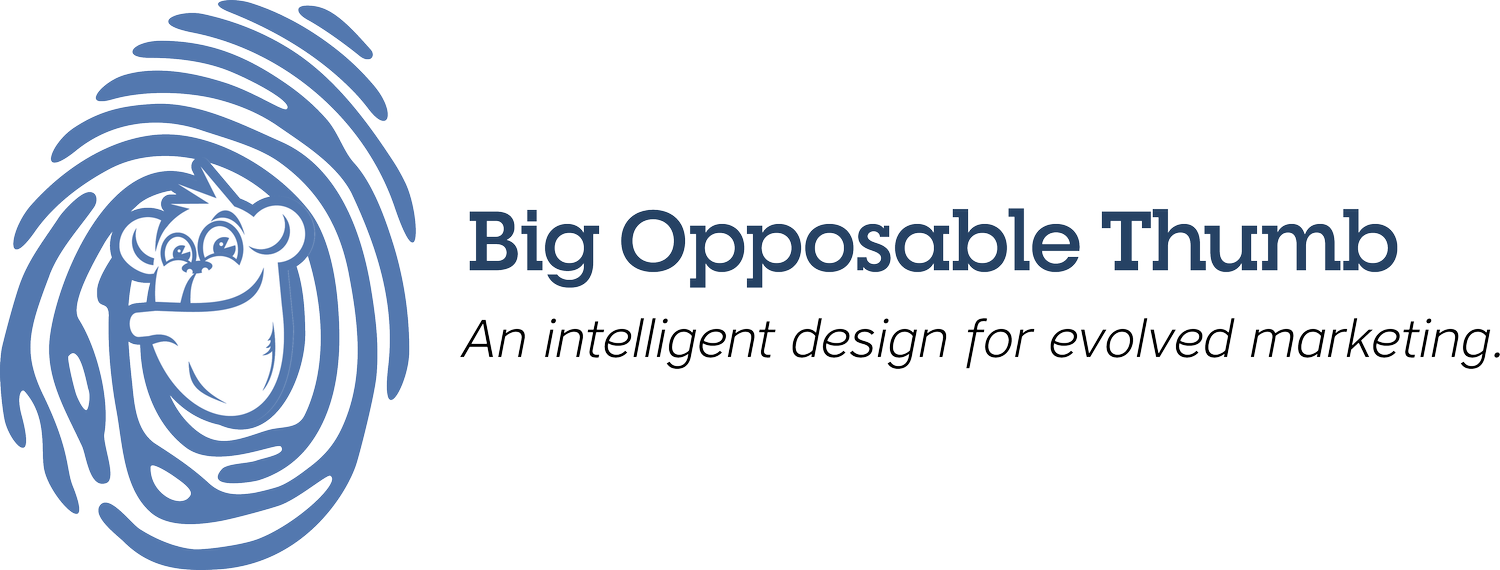What is marketing’s future in the age of AI?
AI-generated image using this blog's headline as the prompt.
This must be the question I am asked most often by clients and colleagues alike in recent months. Ever since Chat GPT hit the market to much fanfare, people across a range of professions wondered how this may affect their job. Will AI make their job easier? Will they still have a job? How do I address the value to customers who feel AI can do everything I do, but cheaper?
As a child of the 70s but came of age in the 80s, I’ve been reared to distrust artificial intelligence. From Wargames’ W.O.P.R. to Terminator’s Skynet to 2001’s HAL 9000, AI is something that serves as a cautionary tale for what happens when humanity is so bent on trying to ‘do’ something that he fails to ask if he ‘should’ do something. You know the trope, ‘well-meaning scientists look to make the world better for everyone but unwittingly unlock the door to our destruction.’
That’s the lens through which I’m hard-wired to view the AI question.
Pop-culture references aside, how would I answer the question of this blog? What keeps me up at night? Do marketing or creative professionals (because I am both) have a future? I’ve explored several AI marketing tools over the last year and to answer this question as a person with huge student loan bills and less than 20 years left before retirement. I’ve been in this business for almost 30 years and that existential question “if not this, then what?” remains in the forefront of my mind. If AI pushes me out of a career, what am I supposed to do next?
Over the course of my career, I have seen a tremendous amount of evolution in this field and from where I started to where I am now, success has been less about the existence of tools and more about what you can do with them. So let me attempt to prognosticate the answer to this blog’s question in three parts: AI for creative, AI for writing, and AI for data.
AI for creative
The question here is one that is not unlike the one asked in the 1990s about digital tools for the creation of artwork. Is art created on a computer artwork? My answer then was the same as it is now. Of course, it is because the computer, like a pencil or paintbrush, is just a tool. Creativity and application are only as good as the person holding that tool. Photoshop didn’t keep artists from exploring creativity. Painter didn’t turn painters away from their canvas. The software expanded on abilities by reducing errors, clarifying vision, and allowing for greater freedoms of experimentation.
I was a pen and ink cartoonist when I started my career. It’s all I ever thought I would be—until I discovered CorelDraw. That software allowed me to take a quantum leap in my approach with new tools available that allowed me to create the smooth lines and intricate detail I always felt was lacking in pen and paper artwork. That early adoption of tools eliminated a perceived roadblock and allowed me to take my creativity to new heights, get noticed, and greased the wheels to the rapid growth of my career.
Similarly, in my marketing career, it wasn’t until I had access to stock photography that I could fully tell the marketing stories clients charged me with creating. I had marvelous stories to tell, but to set up a photo shoot to capture the wild imagery in my mind was wildly expensive for my small business customers. I found I could piece the image together in Photoshop using pieces and parts of stock photos to create my ultimate vision for a campaign.
Photographers still got paid for their stock creations. Even though the cost per job was less, photographers opened the window to receive payment repeatedly for each use of their creation. Photography was a tool that served creativity. Just as it has always been. Yes, one aspect of that profession was now a commodity, but commercial photographers didn’t suddenly find themselves out of a career.
AI is interesting as a tool because, in its current iteration, it allows someone to enter their creative idea via a text-based prompt. AI interprets that prompt and returns one or many results. I have yet to see an AI result that realized the image I had in my mind. Sometimes the creation will work. Sometimes it needs work to massage it into a workable output. Most times, it’s nowhere near close enough to the idea to be usable.
I’ve seen outputs that have people with extra limbs. Missing limbs. Blurred faces. Strange crops. This is not a tool that delivers reliable, expected results. It is very much a work in progress, and it still requires someone with a creative idea to provide guidance. Can it be a valuable tool in certain applications? Absolutely. Will it improve in performance over time? Unquestionably. Can it perform its job without someone inputting the idea? Nope.
QUESTION: How well does the AI-generated image at the top of this page convey the subject of the blog?
AI for writing
Writing is the one component of AI that I would fear the most if I were a copywriter by trade (not, and I repeat, NOT an author). AI does a competent, if unspectacular, job at creating long form copy for articles and blog posts. Like creative AI, it requires a series of text-based prompts to get started. From there, it stitches together concepts based on its online research.
The output is usually coherent. I liken the results to that of listening to a political debate, in that the writing is circular and doesn’t say all that much. There isn’t any genuine character to the writing style, even though you can specify tone as one prompt. The AI will make a statement, cite a couple of facts, and then move onto a new statement that isn’t all that much different from the preceding paragraph. Rinse and repeat. Eventually you make some progress, but the result is rather vanilla. In an increasingly distracted world, bland writing is a detriment to customer engagement.
However, for content marketing efforts, AI may be just enough to get the job done.
My experience with content marketing is that it’s something most business owners have any genuine interest in creating. In principle, they like the idea, but to sit down and write an article is asking too much—as is paying someone to research and write an interesting blog or white paper. Caught between the need to write something and the lack of interest in performing the task, AI may just deliver on the need. Even with its lack of character, the goal of the content piece is more related to search engine optimization than it is showing experience or competency.
I cringe at it, personally. I often weigh the effort against building a brand, so a company that is willing to ‘phone it in’ with their content strikes me as a negative. There’s a difference in my mind between looking for the best way to do something efficiently and taking shortcuts. AI writing feels like a shortcut to me, but I can see why a business owner or manager would find it attractive when weighed against other tasks competing for attention.
I prefer to use it as a brainstorming tool when I’m struggling to come up with a catchy headline or subject line for an email. That’s a completely acceptable use of the technology to help unlock the creative juices and develop something that grabs attention and begs to be read.
AI for data
Now AI for data is a truly legitimate, useful tool. As marketers, we create a tremendous amount of data through our emails, websites, shopping cards, blogs, social media, and other marketing channels. It makes complete sense to turn over analyzing data for trends and performance when the alternative is scrolling through miles of spreadsheets.
Even then, however, I don’t believe that AI has developed to where it can make creative connections between data sets A and D. In the applications I’ve used over the last couple of years, I haven’t seen it make intuitive leaps in the information and what it may mean to the marketer or the client or their customers. It can process and present data, yes. It certainly distills information efficiently, but it is no Star Trek LCARS system capable of postulating connections for Captain Picard or Geordi LaForge.
Not yet, but soon.
Prediction for the future
It’s my current belief that in 2023, AI is more pomp than circumstance. Certainly, ChatGPT has people’s tongue wagging and gears spinning about the possibilities, but for the practical marketer, it’s not an immediate threat to your career. If I were a marketing client, I would be skeptical of any potential marketing partner who throws around AI as a reason to select them to handle your advertising and promotion.
It cannot yet replace the value of a creative individual.
It cannot yet write prose that is interesting and speaks with a unique voice.
It cannot yet make intuitive leaps that supplant years of experience.
Not yet … but ask me again in five years when C-3PO comes for my job. I may have to change my tune.
TL;DR AI is an impressive tool, but’s nowhere near a threat of replacing a well-rounded marketer’s job.


